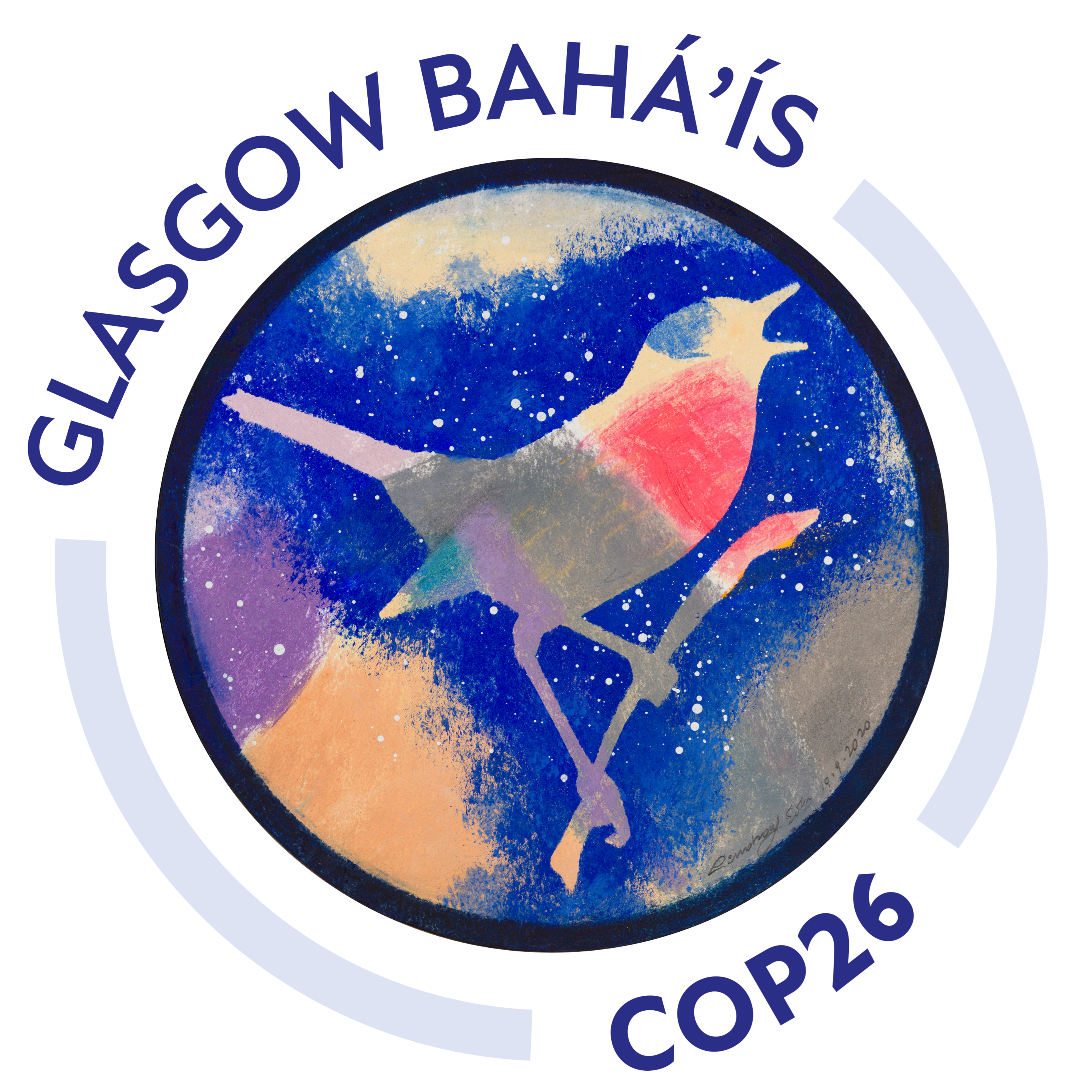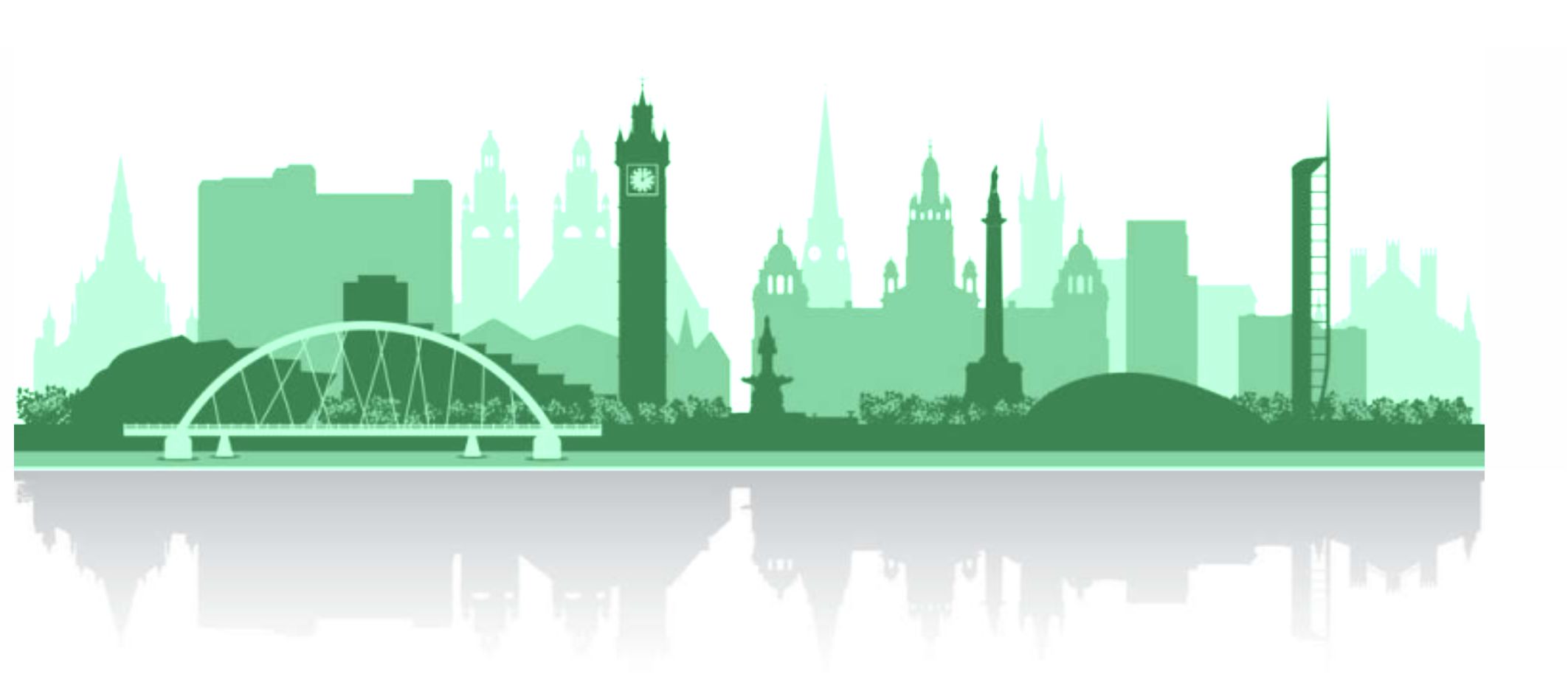Welcome & greetings to you from Glasgow!
 In light of the UN Climate Change Conference COP26 taking place in this city in November 2021, the Spiritual Assembly of the Bahá’ís of Glasgow would like to offer this eco-pledge as a tool for individuals and communities to reflect on and enable practical action towards sustainable use of the world’s material resources. The compilation of environmental actions presented here aims to support the goals of COP26 as well as good ecological objectives generally.
In light of the UN Climate Change Conference COP26 taking place in this city in November 2021, the Spiritual Assembly of the Bahá’ís of Glasgow would like to offer this eco-pledge as a tool for individuals and communities to reflect on and enable practical action towards sustainable use of the world’s material resources. The compilation of environmental actions presented here aims to support the goals of COP26 as well as good ecological objectives generally.
Downloads
You can download the eco pledge web viewing version here.
Why?
The implications of climate chaos caused by unsustainable lifestyles raises a moral imperative for global justice. In recognising that we are global citizens who care about every member of the human family, we feel compelled to respond with urgency. The prompt for action cannot be understated.
While governments, NGOs and large businesses consult to find solutions to reduce greenhouse gas emissions, individual citizens can and must also take some essential actions. We could begin by educating ourselves about the impact of our purchasing habits on the pollution of the air, land and ocean; or by being more conscious of our energy-use behaviour. At present, those of us who live in the developed nations of the world are exceeding our share of resource use and living beyond the capacity of the natural world to regenerate itself. Greater personal awareness of this is a vital first step, and then we must progress to action.
What & How?
The eco-pledge as a whole consists of 19 individual pledges as well as 32 quotations from the Bahá’í Writings.
It’s up to you how you would like to use the eco-pledge, but joining and learning with others is usually most effective. It’s difficult to implement all actions simultaneously. Instead, try a few new actions for a week or so, and then add in more practical changes in the weeks and months following, building up good environmental practice and making a growing difference to your impact on the planet and the climate emergency. As the Bahá’í calendar consists of 19 months, perhaps your community could pledge to focus on one of the 19 actions every month?
The quotations from the Bahá’í writings are intended for deepening and meditation to support the pledge actions and place them in a spiritual context. They revolve around the subject of humanity’s vital interconnection with nature, our role as stewards of the planet’s biosphere, and they highlight virtues such as moderation, justice and humility.
Get started!
Hopefully you’ll feel inspired to take this timely eco-pledge and help to combat global warming and increasing extreme weather events. Taking various actions - as in this eco-pledge - sends a hopeful message to everyone around us. Let us remain hopeful. All of us can play a part in safeguarding the beauty and wondrous resources of our natural world for the sake of our future generations.We encourage you to get involved with the two legacy projects outlined in the eco- pledge, by donating some funds to support these projects. These can be considered as conscious and measured actions to offset individual carbon footprints – or viewed more generally as just simply wishing to contribute to a healthier environment for nature to flourish, which brings immediate and long-term benefits to humanity too.
Forestry - Legacy Projects
The first is the Trees for Life, based in Scotland's Highlands. We are hoping to raise funds to plant at least 100 trees, for at least five years to assist with the massive task of carbon offsetting while also boosting biodiversity by rewilding with native species. The relevant links to the World Interfaith Harmony Grove and the Bahá'í Unity Grove can be found in the eco-pledge booklet.
The second is a rainforest conservation project at Iwokrama, Guyana, South America. The project concerns itself with maintaining the vital natural habitat and the biodiversity of the Guyanese part of the Amazonian rainforest. Iwokrama Forest has some unique ecosystem-habitats and has been awarded sustainable forestry status through the Forest Stewardship Scheme, helping to preserve the region's rich ecological inheritance – alongside adjacent control regions of wilderness preservation for study and comparative research purposes. Its natural resources are also managed in partnership with the indigenous Amerindian population.
Surveys have found over 1250 species of plants and in excess of 2000 in total expected to be discovered; 500 species of birds, 420 species of fish, 86 species of bats, and 130 species of mammals. It employs a ranger patrol service to protect from illegal hunting, mining and deforestation. We are hoping to donate, for at least a period of five years.
https://www.youtube.com/watch?v=p0pJuQkQStQ (1:09)
https://www.youtube.com/watch?v=3M-kov4WEMg (2:32)
https://www.youtube.com/watch?v=aL5QxgrPXVo (6:49)
https://www.youtube.com/watch?v=wI2OpdqbCoA (4:38)
In addition to the Trees for Life and Iwokrama Forest legacy projects being supported by the Glasgow Bahá'í Community, the International Tree Foundation is a further organisation that is also recognised for its valuable work and praiseworthy efforts in Africa. Their work also extends to initiatives in the UK (ITF’s UK tree planting). The organisation was originally founded in 1922 under its earlier name of Men of the Trees by Richard St. Barbe Baker a Bahá'í environmentalist and pioneer of forest conservation. He was in the vanguard of those recognising that the planting of a 'Great Green Wall' of trees across Africa could cease the spread of the Sahara expanding continually southward; a cross-border, transnational project currently being actioned. This afforestation work now taking place is as he envisioned back in 1964.

